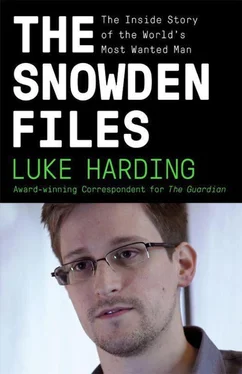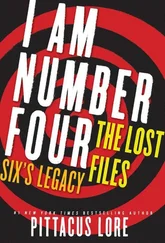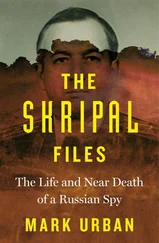Nonetheless, Vaz suddenly asked Rusbridger: ‘Do you love this country?’ The chair’s intention may have been helpful rather than hostile. But the question had an unmistakably McCarthyite hue about it. Rusbridger replied in the affirmative, saying that he was ‘slightly surprised to be asked this question’, then adding: ‘But yes, we are patriots and one of the things we are patriotic about is the nature of democracy, the nature of a free press.’
The editor gave a calm account of the Guardian ’s journalistic processes over the previous six months – the responsible way it had handled Snowden’s files, its 100-plus interactions with government, and the enormous public-interest dimension that drove publication. The Tory MPs on the committee had another angry agenda, however. It was to toss Rusbridger in jail.
The most bizarre line of questioning came from Conservative MP Michael Ellis. As part of its coverage, the Guardian had reported that GCHQ had a branch of the gay pride organisation Stonewall; this information was on Stonewall’s website. Evidently furious, Ellis accused Rusbridger of transmitting stolen material and revealing the ‘sexual orientation’ of persons working at GCHQ.
‘You’ve completely lost me, Mr Ellis. There are gay members of GCHQ. Is that a surprise?’ Rusbridger said. Ellis replied: ‘It’s not amusing, Mr Rusbridger.’ He bafflingly accused the paper of betraying further secrets by reporting that GCHQ staff with their families had visited Disneyland Paris.
These contributions from the Guardian ’s political enemies may have been wild and not a little silly. But the British criminal investigation into the Snowden affair was real enough. Speaking to the same committee, Cressida Dick, assistant commissioner at Scotland Yard, confirmed that detectives were investigating whether ‘some people’ had broken the law. Specifically section 58a of the Terrorism Act. This said it was an offence to communicate any information about intelligence staff ‘likely to be of use to terrorists’. Not just secret info but anything at all: photos, addresses, even the name of their cat.
Dick said: ‘We need to establish whether they [some people] have or haven’t. That involves a huge amount of scoping of material.’
The journalists who published the Snowden revelations had been involved in the most thrilling story of their careers. It was in the public interest. Now, it seemed, they were suspects.
Somewhere near Moscow
2014–?
‘Even in Siberia there is happiness.’
ANTON CHEKHOV,
In Exile
For nine weeks Edward Snowden was mostly invisible. There was the odd photo – of a young man pushing a shopping trolley across a Moscow street. (Surely a fake? The man looked nothing like him!) Another leaked image was more convincing. It showed Snowden on a tourist boat cruising along the Moscow River. It’s summer. He’s wearing a cap, and has a beard. In the distance, a bridge and the golden domes of Christ the Saviour cathedral, blown up by Stalin and rebuilt by Yeltsin. Just out of shot are the high walls of the Kremlin.
These leaks to the Russian media were designed to give the impression Snowden was leading a ‘normal’ life. Given his circumstances, that seemed unlikely. Clues pointed in the opposite direction. The news agency that got the Snowden picture, Lifenews.ru, is known for its ties to Russia’s security agencies. Snowden’s lawyer, Anatoly Kucherena, meanwhile, said his client was settling in, learning Russian and had got a new job with a large internet firm. But VKontakte, Russia’s equivalent of Facebook, and others said this wasn’t so.
It was in October that Snowden definitively re-emerged. Four Americans travelled to Moscow to meet him. All were fellow whistleblowers who had spent their careers in US national security and intelligence. They were Thomas Drake, the former NSA executive whose case Snowden had followed, one-time CIA analyst Ray McGovern, Jesselyn Radack, who worked in the Justice Department, and Coleen Rowley, ex-FBI.
It was an unusual trip. Before setting off from Washington DC the four hired a lawyer in case they had problems re-entering the US. They also left behind their electronics. As Radack noted, the US might geolocate their whereabouts from mobile phones or laptops, and thus find out Snowden’s hiding place. The authorities could search and confiscate their devices when they flew back.
In Moscow, the four were driven in a van with darkened windows to a secret location. There was Snowden. WikiLeaks released a video. The oil paintings, chandelier and pastel colours in the background suggest an upmarket hotel, of which Moscow has plenty. More probably, though, this was a government guesthouse. The Americans found him well, relaxed, good-humoured and – as McGovern put it afterwards – at peace with himself and his decision to speak out. Snowden joked darkly that he could not have been a Russian spy: he said Russia treats its spies much better than to leave them trapped in the Sheremetyevo transit zone for over a month.
The group presented him with the Sam Adams Award for Integrity in Intelligence. They also delivered a message: that in contrast to official US vitriol, many Americans back home warmly supported him, including inside the intelligence community. According to Radack, Snowden – brilliant and humble, in her words – was concerned not about himself but what might happen to Greenwald, Poitras and the young WikiLeaks activist Sarah Harrison, who had stuck with him since Hong Kong.
Snowden had been following events. Over dinner, he explained why he had done what he did. The relationship between the governing and the governed in America had come ‘increasingly into conflict with what we expect as a free and democratic people’, he told his guests. He contrasted his fate for telling the truth – exile and vilification – with that of Clapper, who had received no punishment whatsoever.
And he returned to his chief theme: that the programs of NSA mass surveillance he exposed ‘don’t make us safe’. In his words: ‘They hurt our economy. They hurt our country. They limit our ability to speak and think and to live and be creative, to have relationships, to associate freely… There’s a far cry between legal programs, legitimate spying, legitimate law enforcement where it’s targeted, based on reasonable, individualised suspicion and warranted action, and a sort of dragnet mass surveillance that puts entire populations under a sort of an eye that sees everything, even when it’s not needed.’
His father Lon Snowden flew to Moscow at the same time. They had a private reunion.
Three weeks later Snowden had another public visitor. This time it was Hans-Christian Ströbele, a flamboyant Green member of Germany’s parliament and radical lawyer, now aged 74. Over in Germany, the Merkel bugging affair had shaken the political class. Ströbele bore an invitation: for Snowden to testify before a parliamentary committee of the Bundestag investigating US spying. Ströbele sat with Snowden and Harrison around a table; there was discussion, moments of laughter, and a group photo.
Snowden gave Ströbele a typed letter to deliver to Frau Merkel and the German parliament. In it he said he felt ‘a moral duty to act’ after witnessing ‘systematic violations of law by my government’. As a result of reporting these concerns, he had faced ‘a severe and sustained campaign of persecution’. Snowden also wrote that ‘my act of political expression’, as he termed it, had led to a heartening response around the world, including ‘many new laws’ and a growing knowledge for society.
In Snowden’s view, the White House’s campaign to criminalise his behaviour and pile on felony charges was an injustice. He was prepared to say as much before the US Congress – if it would let him. ‘Speaking the truth is not a crime.’
Читать дальше












